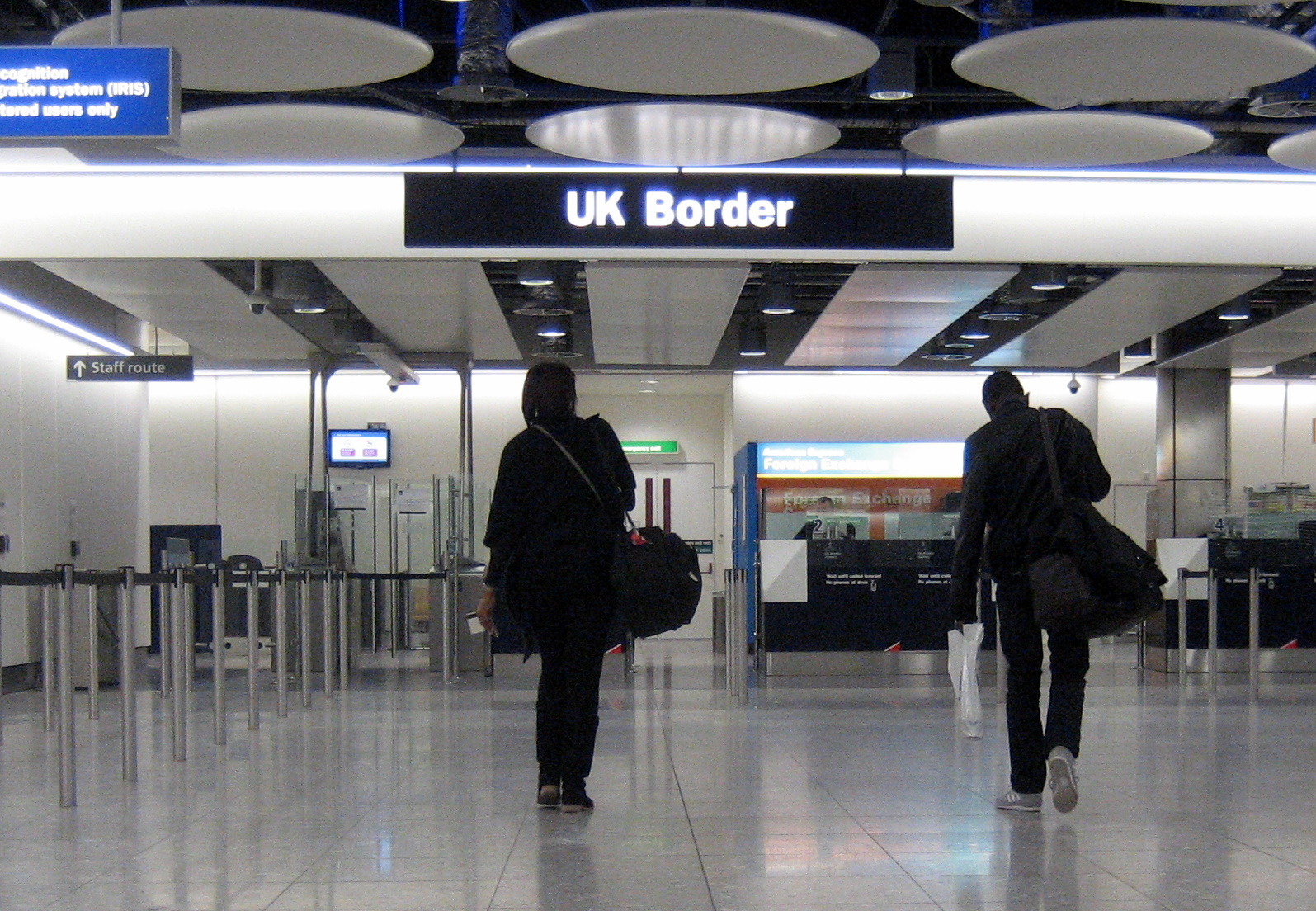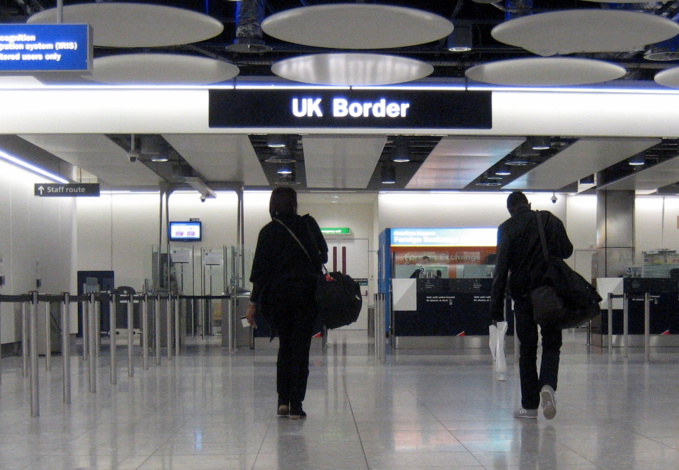From 1973 to 2014, the EU's share in the structure of the UK's trade turnover increased from 33% to almost 60%, so that any disruption of trade ties will significantly damage the country's economy, Rand notes. The center’s experts analyzed the consequences of eight Brexit scenarios for the UK, the EU and the USA. Five of them fall into the category of "hard", because they suggest a way out of the single market and the customs union, which, according to experts, will have a unambiguously negative impact on the country's future economic growth. At the same time, the conclusion of free trade agreements with other countries, including the United States, will not be able to fully compensate for losses in trade and investment in the European market.
The main tasks of the British government in the negotiations with the EU are to restrict the freedom of movement of the union’s citizens within the country, exit from the jurisdiction of the European Court of Justice, as well as the maximum preservation of free trade and the minimum amount of output payments, the authors believe. The EU, in turn, aims to keep the UK as a close partner, but to present the agreement as a balance of rights and obligations, and to maintain the integrity of the single market, ensuring that other countries will not enjoy the same benefits as full EU members. The latter is most important to prevent further encroachments on the way out, Rand points out. At the same time, the very structure of the current negotiations (that is, a consistent rather than a parallel discussion of exit conditions and a future agreement) and a lack of time significantly weaken the position of Britain from the point of view of game theory, note there.
Contrary to Prime Minister Theresa May's statement that "the no agreement is better than a bad agreement," such a scenario is the most negative. In this case, Britain's trade with the countries of the union and the rest of the world will be governed by WTO rules. The country will also be able to set its own tariffs and regulatory standards, but this freedom will cost it 4.9% of GDP, or $ 140 billion over ten years (compared to the forecast level preservation of the current state of things). This will happen due to increased trade costs and a reduction in investment inflows, while the EU's losses will be much smaller - 0.7% of GDP, or $ 97 billion (per capita losses of $ 2,144 and $ 219 respectively).
If the parties still manage to agree on a trade agreement, tariffs will remain at the same level. However, the requirements for UK exports to the EU will be toughened, and non-tariff barriers will grow with time, as the rules of customs regulation will begin to differ from each other. Losses of the UK GDP will be 3% less (+ $ 85 billion), and the EU - by 0.5% less (+ $ 67 billion) than under the first scenario.
The conclusion of a trade agreement with the US, but not with the EU, will be less profitable, since their trade turnover is half that of Europe (+ 2.4% of GDP, or $ 70 billion in excess of the WTO scenario for the UK, + $ 41 billion for the US).
In the case of a transitional period and the maintenance of zero tariffs (Rand estimated its duration to be five years, although now it is about two years), the UK will win 2.8% of GDP, or $ 79 billion.
From various scenarios of "soft" Brexit, that is, the preservation of membership in either a single market or in a customs union, a minor advantage over the second scenario can be provided by the Norwegian model (membership in the European Economic Area with access to a single market), but this is worse than preserving status quo. And only in the case of a tripartite UK-EU-US treaty, similar to the Transatlantic trade and investment partnership (the proposed trade agreement between the EU and the US, negotiations on which are postponed indefinitely), the economic benefits of Britain will be able to exceed losses from Brexit: +7 , 1% of GDP ($ 202 billion) in comparison with the "hard scenario". However, this scenario is unlikely in the current political situation, Rand says, pointing out that the EU-US bilateral agreement with the preservation of Britain within the union would still be more profitable for all participants.
source: rand.org
The main tasks of the British government in the negotiations with the EU are to restrict the freedom of movement of the union’s citizens within the country, exit from the jurisdiction of the European Court of Justice, as well as the maximum preservation of free trade and the minimum amount of output payments, the authors believe. The EU, in turn, aims to keep the UK as a close partner, but to present the agreement as a balance of rights and obligations, and to maintain the integrity of the single market, ensuring that other countries will not enjoy the same benefits as full EU members. The latter is most important to prevent further encroachments on the way out, Rand points out. At the same time, the very structure of the current negotiations (that is, a consistent rather than a parallel discussion of exit conditions and a future agreement) and a lack of time significantly weaken the position of Britain from the point of view of game theory, note there.
Contrary to Prime Minister Theresa May's statement that "the no agreement is better than a bad agreement," such a scenario is the most negative. In this case, Britain's trade with the countries of the union and the rest of the world will be governed by WTO rules. The country will also be able to set its own tariffs and regulatory standards, but this freedom will cost it 4.9% of GDP, or $ 140 billion over ten years (compared to the forecast level preservation of the current state of things). This will happen due to increased trade costs and a reduction in investment inflows, while the EU's losses will be much smaller - 0.7% of GDP, or $ 97 billion (per capita losses of $ 2,144 and $ 219 respectively).
If the parties still manage to agree on a trade agreement, tariffs will remain at the same level. However, the requirements for UK exports to the EU will be toughened, and non-tariff barriers will grow with time, as the rules of customs regulation will begin to differ from each other. Losses of the UK GDP will be 3% less (+ $ 85 billion), and the EU - by 0.5% less (+ $ 67 billion) than under the first scenario.
The conclusion of a trade agreement with the US, but not with the EU, will be less profitable, since their trade turnover is half that of Europe (+ 2.4% of GDP, or $ 70 billion in excess of the WTO scenario for the UK, + $ 41 billion for the US).
In the case of a transitional period and the maintenance of zero tariffs (Rand estimated its duration to be five years, although now it is about two years), the UK will win 2.8% of GDP, or $ 79 billion.
From various scenarios of "soft" Brexit, that is, the preservation of membership in either a single market or in a customs union, a minor advantage over the second scenario can be provided by the Norwegian model (membership in the European Economic Area with access to a single market), but this is worse than preserving status quo. And only in the case of a tripartite UK-EU-US treaty, similar to the Transatlantic trade and investment partnership (the proposed trade agreement between the EU and the US, negotiations on which are postponed indefinitely), the economic benefits of Britain will be able to exceed losses from Brexit: +7 , 1% of GDP ($ 202 billion) in comparison with the "hard scenario". However, this scenario is unlikely in the current political situation, Rand says, pointing out that the EU-US bilateral agreement with the preservation of Britain within the union would still be more profitable for all participants.
source: rand.org



















